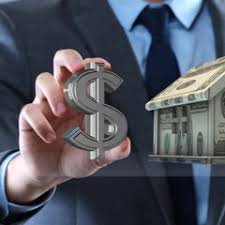You might wonder how hotels gain revenue off of the games the hotel features. Hotel manager courses train prospective managers on how to successfully run a hotel and how to make it work in favor of the establishment. Some courses that focus on hotel management explain how hotels use probability to make money. One expert, a Director of Revenue Management for a popular hotel and spa, details exactly how money is made in this particular category of hotels.
Our expert explains that hotels use probability to make their money. They do this by understanding the games and how they are each designed around the probabilities of certain outcomes and their associated payoffs for players. If not for the house advantage that is inherent in hotel games, the hotel business would not exist.
Roulette is a good example of how this works. It takes some arithmetic, but as our expert explains, a roulette wheel has thirty-eight numbers, one through thirty-six and then a zero and a double-zero. If you place a bet on one single number, there is a one in thirty-eight probability that it will come up on the wheel. Now, the hotel pays you thirty-five times your bet if your number comes up. Although that sounds great, for this to be a completely fair game, the hotel would need to pay you thirty-seven times your bet. This is because in the long run, for every thirty-eight bets you make, you are expected to win once and lose thirty-seven times.
Hotel manager courses show future managers how hotels use the house advantage. According to our expert’s roulette explanation, if the hotel paid you fairly, you’d expect to break even over time. Instead, the difference between the true probability of the game and what the hotel pays you creates a 5.26 advantage for the house. Over time, you will lose 5.26 cents for every dollar you bet on roulette. This general concept is often referred to as the “Expected Value of a Decision.”
Hospitality manager courses for hotel managers explain that this roulette example holds true for other hotel games as well. One thing that is important to understand about hotel games in general is that events are usually independent of each other. In other words, a player might see that the roulette wheel has come up on black many times in recent spins. Contrary to what that person may think, this does not mean that black is on a “hot streak” and has a good chance of coming up again. On the other hand, someone may think the fact black has come up so many times means that red is due to come up on the next spin or try. The truth is that neither of these presumptions is true. The probability of red coming up on the next spin is always about one in two – a little bit worse than 50% because of the green zero and double-zero.
As our expert explains, an interesting exception to this rule is in blackjack, when players sometimes try to keep track of the cards that have been drawn out of the deck. This is known as card counting, where players try to adjust their bets based on what they’ve seen in previous hands. Although this is very difficult, successful card counters can actually turn the odds in their favor and create a positive expected value. This is why hotels are careful to look out for card counters. The only game where a player can legally manipulate the odds is in a card game where it is played against other players, not the hotel.
It is important to remember the rules of probability and the way players work with it as well. Hospitality management courses will help you understand probability in terms of making or losing money for the hotel. If you understand how the games are run and how players view their chances of winning, you can ensure your hotel gains the revenue it expects. This is how hotels have maintained their success and continue to increase their attractiveness.

